the works of Robert Calvert
- part V: 1984 > '87 -
"I
used to enjoy sitting in churchyards and reading
Verlaine, Keats, Shelley, Dylan Thomas. - God, I was naive!
I thought you could make a living as a poet!" -
R.C.
This
list of Calvert's works is broken up into six parts.
This part [ 5 ] includes the works from '84 to '87.
jump straight to part
I / II
/ III /
IV / VI
...
roll down to explore part V ...
![]()
![]()
|
|
 1984 -
FREQ
- Lp / CD
1984 -
FREQ
- Lp / CD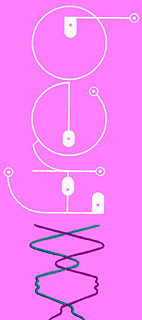 The album was inspired and dealt for a good part with the then ongoing miner strikes in Britain which caused a heavy controversy amongst the British public - the outcome of which Margaret Thatcher finally used to smash the worker's unions to pieces. Calvert and various other musicians (Billy Bragg, The Redskins a.o.) took sides with the worker's, played benefit gigs - and finally released FREQ. Another sign of his interest and engagement in current social / political affairs - just a remark for everyone who wants to categorize Mr. Calvert as an artist who was 'only' obsessed with futuristic ideas. In fact, Calvert has been described by his wife Jill as 'a luddite with a fascination for new technologies'. Interspersed between the songs are various speeches and original recordings of some demonstrations and talks amongst the workers. One of those actually features Calvert in conversation with them - describing Mrs. Thatcher nice, briefly and rather accurate as "Hitler without a moustache". Highlights are the gloomy 'Acid Rain' and the brooding, yet beautiful 'The Cool Courage of Bomb Squad Officers'. > Read an essay by THOMAS PYNCHON (author of 'Gravity's Rainbow') - a contemporary view on the luddite attitude: 'Is it O.K. to be a Luddite?' TRACKS: Ned Ludd [illustrated + sound] / Acid Rain / All the Machines are Quiet / Standing on the Picket Line / The Cool Courage of Bomb Squad Officers / Work Song / - the new release by Cleopatra also features: Lord of the Hornets / The Greenfly and the Rose -- in between all songs are "Talk" sequences.
A recording of a Hawkwind concert from May 1973, London / Wembley - though the cover states -obviously wrong- 1976. The sound quality isn't quite overwhelming - but this album features several vocal and some rare poetry performances by Calvert: the powerful and evocative In the Egg and the threatening 'Wage War', both showing Calvert in his best, menacing form - furthermore a rare live performance of Urban Guerilla, the follow up single to Silver Machine - and actually a much better song. This recording also shows how much Calvert was involved with the band and how his appearences in fact coined the general style of the performances during this period. More and more of his poetry & sound performances were integrated in the gigs and Calvert took over on vocals for various songs - for a little while he became (for the first time) the band's lead-singer - however, a little later Calvert withdraw from the band to concentrate on his solo-album Captain Lockheed and the Starfighters. Even if the quality of the recording is far from perfect it is worthwile having for these rare Calvert performances and as a document for one of Hawkwind's best periods in the band's long / ongoing history. TRACKS: Gaga / In the Egg (flash-animations) / Orgone Accumulator (illustrated) / Wage War / Urban Guerilla / Master of the Universe / Welcome to the Future (flash-animation) / Sonic Attack / Silver Machine ---- actually there are LOTs of different Hawkwind releases from that period around, but I am really too tired to look out for all of them...
These tapes
were released on Calverts own mail-order label. They are containing
a collection of demo-recordings for the FREQ
and TEST TUBE CONCEIVED albums, produced on his
home equipment. Furthermore there are some songs which never made
it onto an official album release - yet. Some of them were very
probably meant to appear on the next record - like 'Radio Egypt'
and 'Working Down a Diamond Mine', which were already part of the
concert's play-list. The latter one again focuses on the subject
of SOUTH-AFRICA - a theme that Calvert was haunted by throughout
his life - always carrying with him a certain feeling of guilt -
having been born there, having his parents and brother there...
- read also his poem White
Dynasty on this matter and another comment of Calvert on his
personal situation in regard to South Africa on the QUOTES
pages.
The last collection
of his poetry works that Calvert published - again via his own "Harbour"
publications. |
END of PART V - go to PART VI
|
|||||||||||||||||||||||
 |
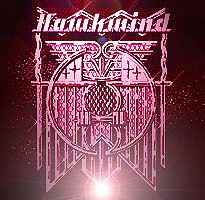
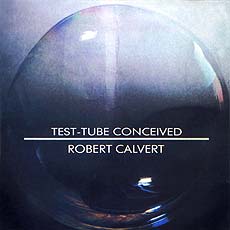 1986
-
1986
- 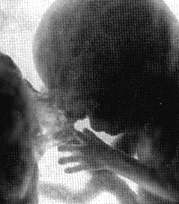
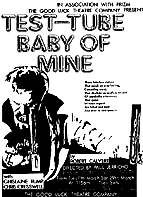
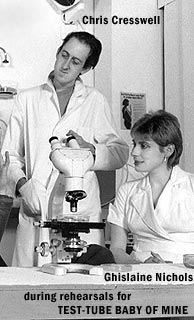
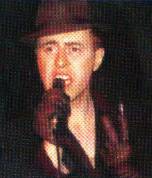 1987
/ 1992 -
1987
/ 1992 -